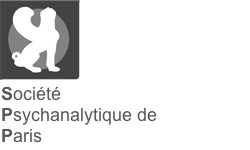| Type de document : | Article : texte imprimé |
| Titre : | L'autre du désert (Isabelle Eberhardt) (2004) |
| Auteurs : | / Sylvie SESÉ-LÉGER |
| Dans : | Sigila (n° 13, 2004) |
| Article en page(s) : | pp. 79-91 |
| Langues: | Français |
| Mots-clés : | Errance |
| Résumé : |
Dans sa vie brève et aventureuse, Isabelle Eberhardt, journaliste et romancière russe, exalte la mélancolie du désert aux portes de l’Orient. Sous une identité masculine d’emprunt, elle partage la vie nomade des populations du Sahara. Personnage mystérieux et contrasté, elle adhère à l’islam, et se fait initier dans une confrérie soufie. Ses chroniques de la vie dans les oasis du Sud algérien, ses reportages sur la pacification de la région, seront édités après sa mort, lors de la catastrophe d’Aïn Sefra, à l’automne 1904. Isabelle Eberhardt avait vingt-sept ans. Dans sa courte existence, elle tenta de surmonter la blessure de sa bâtardise en se faisant reconnaître comme écrivain.
-- Abstract: In her short and adventurous life, the Russian journalist and novelist, Isabelle Eberhardt, exalted the melancholy of the desert on the frontier of the Orient. Borrowing a masculine identity, she shared the nomadic life of the people of the Sahara. She was a mysterious and contradictory character, who espoused Islam, and got admitted to the Soufie brotherhood. Her chronicles of a life in the oasis of Southern Algeria, her reports of the pacification of the region, were published after her death, which occurred during the catastrophe of Ain Sefra in the autumn of 1904. Isabelle Eberhardt was twenty-seven years old. During her short life, she tried to surmount the wound of illegitimacy by seeking recognition as a writer. |
Exemplaires (1)
| Code-barres | Cote | Support | Localisation | Section | Disponibilité |
|---|---|---|---|---|---|
| 20010170 | K07-5 | Revue | BSF Paris | ψ Réserve : Périodiques | Consultation sur place |




